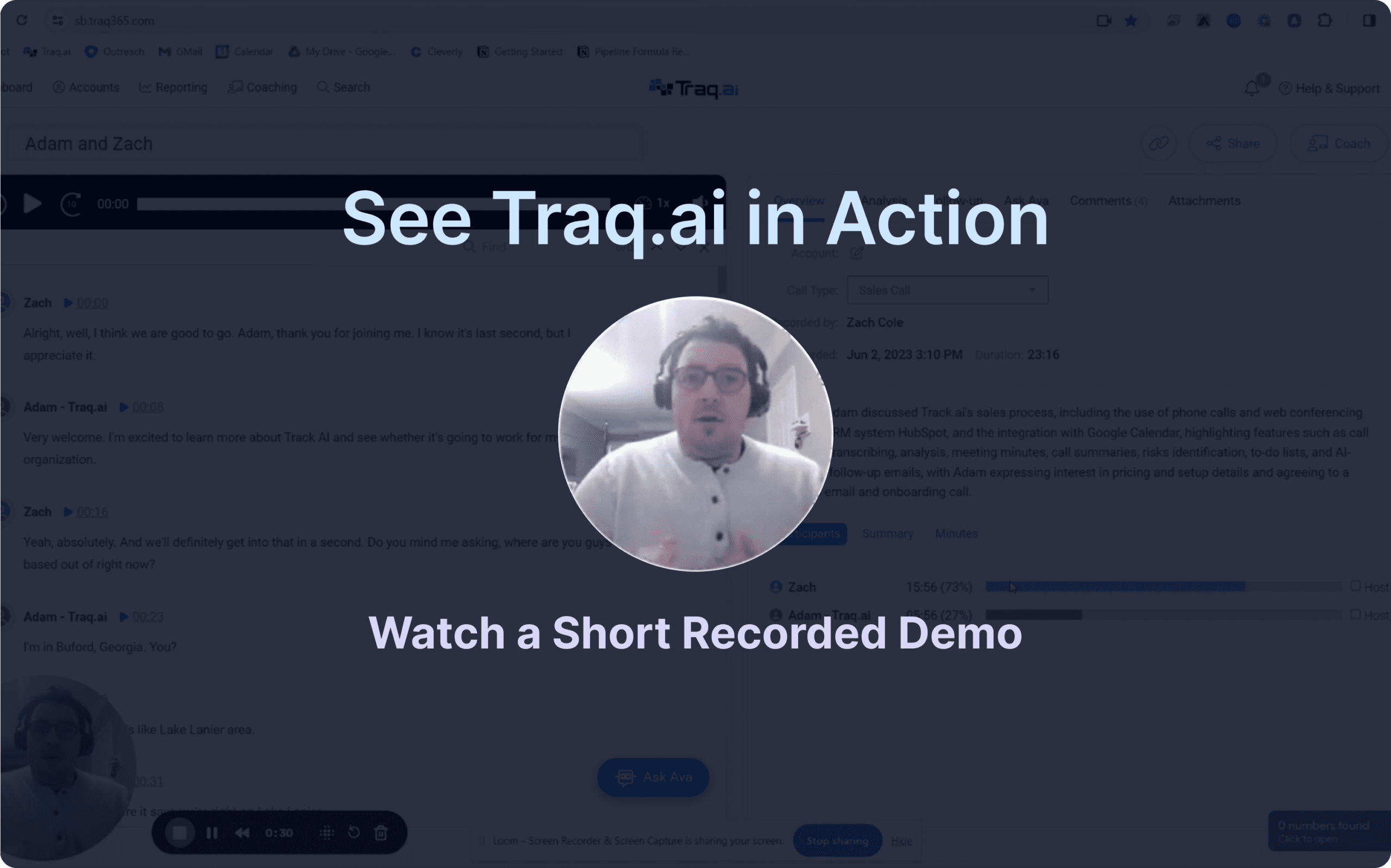Podcast: Transforming Sales with Traq.ai: A Vision to Make Sales Teams More Effective
Summary
Traq.ai uses AI-powered analysis of sales conversations to deliver real-time coaching, build urgency, and improve customer retention. Data-driven feedback, continuous skill development, and a culture prioritizing growth and work-life balance help sales teams perform and engage more effectively; all supported by thoughtful compensation strategies.
Sales has long been viewed as an art, reliant on intuition, charisma, and the “gut feel” of highly driven professionals. But as markets become more competitive and decision cycles more complex, sales leaders are discovering that the path to consistent success runs through data, technology, and deliberate organizational culture. The recent episode of the Innovators and Investors podcast, featuring Adam Rubenstein, co-founder and CEO of Traq.ai, offers an inside look at how AI-driven conversational intelligence is rapidly re-shaping the science of sales, one call at a time.
Sales as a Data-Driven Sport
Adam likens sales to athletics: ongoing coaching, structured feedback, and constant skill refinement drive ongoing improvement, even for top performers. He describes a common challenge: most sales organizations rely heavily on subjective assessments, where performance is measured more by “feel” than by data. This leads to gaps in coaching, missed opportunities, and a lack of objective insights for both managers and reps.
Traq.ai addresses this by recording and analyzing sales conversations using AI. The platform doesn’t just note if a call took place—it quantifies the conversation itself, evaluating key skills such as rapport-building, question quality, urgency, and customer sentiment. For salespeople, this creates an immediate feedback loop—akin to watching game film in sports—and enables real, ongoing self-coaching.
Why Continuous Coaching Matters
Traditional sales training often involves hiring an expert for a few days, injecting a burst of energy, and then watching momentum fade as old habits resume. Adam stresses that top athletes—and top salespeople—require continuous, real-time feedback and deliberate practice to maintain excellence. Traq.ai’s tools empower teams and individuals to recognize weaknesses—for example, struggling to build urgency or respond to objections—and systematically improve over time. This supports a culture of incremental learning and measurable progress.
This customer-centric, iterative approach creates “sticky” products that genuinely solve meaningful problems, building loyalty and lasting value.
Building Urgency: The Art and Science
One of the most challenging—and critical—skills in sales is creating genuine urgency. Too often, attempts to rush a prospect come across as transparent or manipulative. Rubenstein recommends a more thoughtful approach: clearly articulate the consequences of inaction, personalize urgency with relevant examples (such as insurance coverage lapses or delays impacting company valuation), and focus on real business outcomes. This approach, supported by AI-generated conversation analysis, helps salespeople surface and act on opportunities to motivate action, shortening sales cycles in a way that builds trust and credibility.
Tailoring Technology for Humans
An important lesson from Traq.ai’s journey is that even the best technology needs a human touch. Early on, new products often depend on hands-on customer support, tailored customization, and a feedback-rich development loop. By integrating client-specific training materials, Traq.ai ensures that coaching and analytics fit unique industry needs—not just generic sales advice. This customer-centric, iterative approach creates “sticky” products that genuinely solve meaningful problems, building loyalty and lasting value.
Deliberate Culture as a Strategic Advantage
Rubenstein is deliberate about shaping company culture and sees it as foundational to long-term success. Traq.ai emphasizes three pillars:
- Stakeholder Responsibility: Consistently doing right by vendors, employees, customers, and investors.
- Professional Development: Encouraging team members to grow across dimensions—sales, writing, communication, and technology.
- Work-Life Balance: Empowering employees to seek roles within the company where they thrive and providing an environment that supports well-being.
These cultural commitments help attract and retain top sales talent—especially when the company can’t (or chooses not to) offer top-of-market salaries. Equally important are clear career paths and equity incentives, structured to align employees’ contributions with long-term organizational success.
Equity Compensation and Startup Growth
Startups often grapple with whether to offer cash or equity, especially to sales teams used to commission-based compensation. Traq.ai takes a nuanced approach: not every employee values equity the same way, so the company customizes packages accordingly and makes a point to educate staff on the long-term benefits of ownership and investment. Five-year equity plans, structured with realistic growth assumptions, can help drive alignment and foster a sense of shared mission.
From Activity Metrics to Conversation Quality
Most sales teams are familiar with tracking activity: how many calls, emails, or demos were completed. Traq.ai adds a transformative layer, scoring the content of conversations themselves. Metrics such as rapport, engagement, and client satisfaction are now measurable and actionable. Managers gain visibility into the nuances of performance, pinpoint coaching needs, and proactively address client dissatisfaction before it impacts retention.
The Road Ahead: Technology Paired with Empathy
As Rubenstein concludes, the winning formula for modern sales organizations blends AI-powered objectivity with human empathy, ongoing coaching, and intentional culture-building. Technology alone does not guarantee success—it must facilitate learning, foster engagement, and empower teams to serve clients better every day.
For founders and sales leaders, embracing this holistic approach—grounded in data, learning science, and people-first philosophy—is the real differentiator. Traq.ai’s story is a compelling blueprint for building smarter, more effective, and more resilient sales organizations in the AI era.
Watch the interview
Keep Learning

The Ultimate Guide to Conversation Intelligence: What It Is, How It Works, and Why Sales Teams Need It

Podcast: Transforming Sales with Traq.ai: A Vision to Make Sales Teams More Effective


